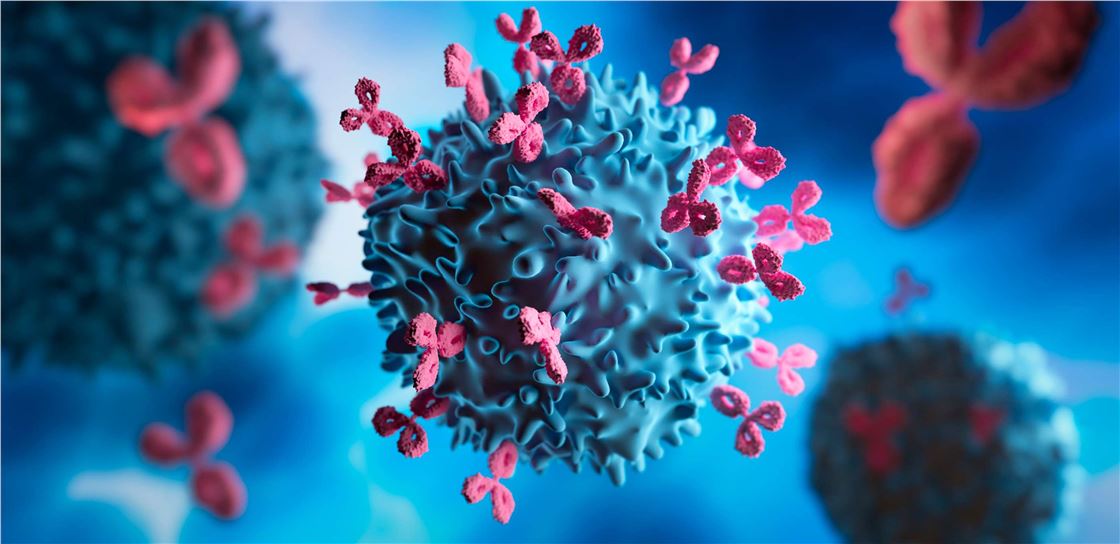As inhibitory antibodies gain increasing significance in disease treatment, scientists are gradually shifting their focus to agonistic antibodies. Research has revealed that agonistic antibodies also have a vital role in disease treatment, particularly in the fields of cancer treatment and immune diseases. Based on our rich field experience and advanced technology platform, Creative Biolabs provides comprehensive services for custom agonistic antibodies to support agonistic antibody therapy development.

Agonistic antibody therapies and antagonistic antibody therapies show great potential in the field of disease treatment. Agonistic antibodies target receptors on immune cells, enhancing the anti-cancer activity of these cells by altering signaling within the immune cells. The rules governing the activity of agonistic antibodies are more complex than those of directly targeted antibodies, involving epitope recognition, isotype, and FcγR engagement collectively to regulate agonistic antibody activity.
In cancer therapy, agonistic antibodies are pivotal. The B7-CD28 family and the tumor necrosis factor (TNF) receptor superfamily (TNFRSF or TNFR) dominate the current landscape of agonistic antibodies in cancer therapy. Members of the B7 family are important co-stimulatory molecules and belong to the immunoglobulin family. They consist of ligands for structurally related cell surface proteins. B7 can bind to the receptor CD28 on lymphocytes, modulating the immune response through co-stimulatory and co-inhibitory signaling. CTLA4 and PD1, the primary co-inhibitory receptors of the B7-CD28 family, were the targets of the first successful cancer immunotherapeutic drugs. Multiple drugs have been approved for marketing or are in advanced stages of clinical development. CD28, a co-stimulatory receptor, mediates T-cell signaling following TCR activation. Upon binding to ligands B7-1 (CD80) and B7-2 (CD86), CD28 activates downstream signaling for T cell function, proliferation, and survival. Inducible T cell co-stimulatory molecules (ICOS) are another co-stimulatory receptor crucial for activation and memory T cell function and survival in response to ICOS ligands (ICOSLG). Although the early development of CD28 agonists led to severe clinical toxic effects, significant progress has been made in the last decade. Both CD28 and ICOS are targets for developing therapeutic agonists in cancer treatment. TNFRSF, comprising 29 receptors, mediates diverse immune and non-immune cellular functions. Six receptors, including CD40, OX40, 4-1BB (CD137), CD27, GITR (glucocorticoid-induced TNFR-associated protein), and CD30, primarily act as immune co-stimulatory factors. Other members, such as DR3 (death receptor 3), TNFR1, TNFR2, LTβR (lymphotoxin beta receptor), and HVEM (herpesvirus entry mediator) also have potential immune co-stimulatory effects.
Recent studies have identified numerous immune checkpoint agonists with potential in treating immune disorders. Immune checkpoints like CD28, CTLA4, ICOS, CD40, and OX40L have demonstrated effective therapeutic capabilities for treating immune system disorders. In addition, studies have confirmed that co-stimulatory pathways are natural targets for autoimmune immunotherapy, paving the way for new research directions and renewed hope in the treatment of immune system diseases.
Creative Biolabs has a wealth of knowledge and experience in agonistic antibody therapy and antagonistic antibody therapy development. We would be happy to share with you our knowledge and experience in custom agonistic antibodies and custom antagonistic antibodies.
All listed services and products are For Research Use Only. Do Not use in any diagnostic or therapeutic applications.